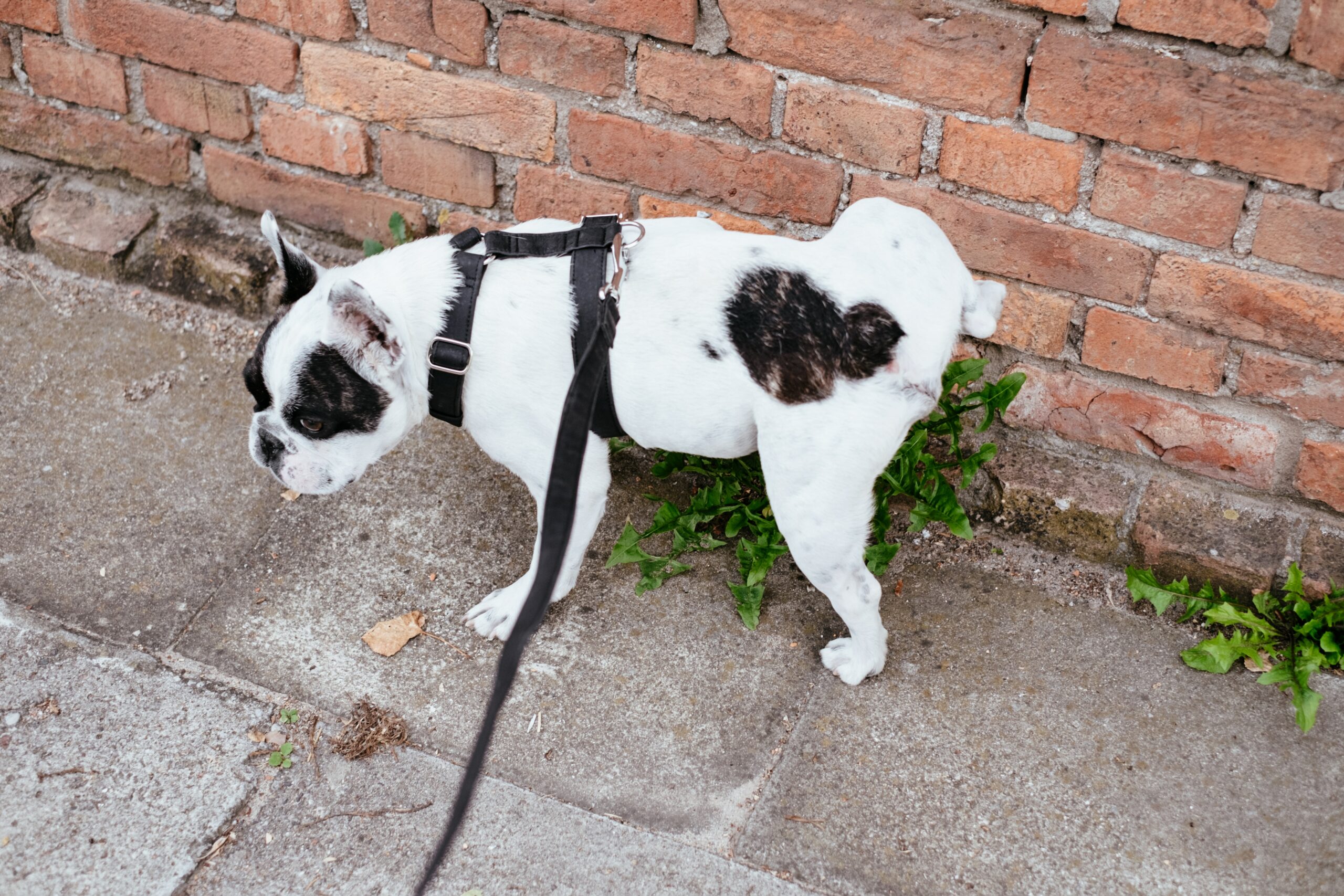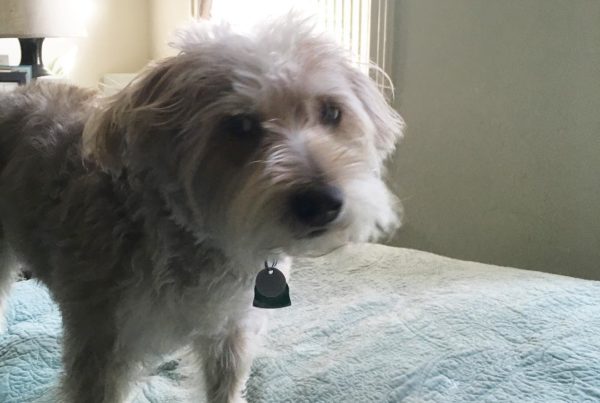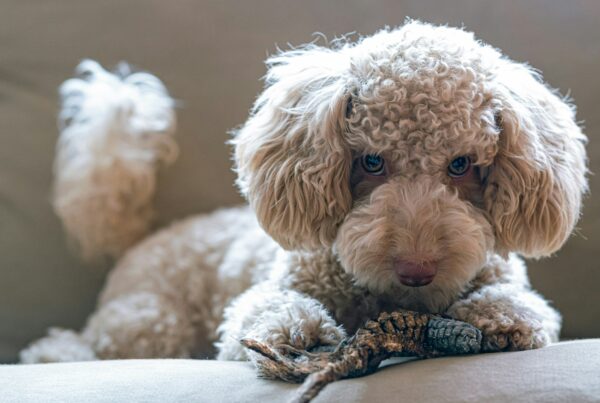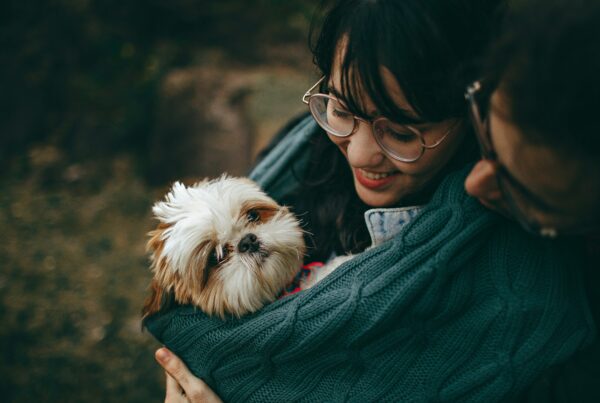Let’s talk about dog peeing in places they should not as it relates to a potential (or current problem). Of my clients will contact me for urination behavioral issues (peeing everywhere) or constantly needing to go outside to pee as part of their overall need to hire a dog professional, 3/100 or 3% will have a health caused issue- a Doggy UTI or worse. Now while the stats seem stacked in the other direction of going to the vet vs. calling a trainer, it’s important to be in the know of the 4 signs your dog might have a UTI. 14% of all dogs will experience a bacterial related UTI in their lifetime.
9 Symptoms of UTI in Dogs
Some common UTI symptoms include:
- Bloody and/or cloudy urine
- Straining or whimpering during urination
- Accidents in the house (couch, bed, missing the pee pad more recently, or less accurately)
- droplet(s) of urine outside or around the home
- Peeing more outside on a typical walk than normal
- Needing to be let outside more frequently
- Licking around the urinary opening
- Fever
- Stinky urine (fish or stronger than usual smell)
Potential Diet-Related Causes
Let’s talk about some less than discussed potential culprits that could be contributing to a bacterial UTI in dogs. Bacteria can come from chicken in the diet. With raw and home cooked meals on the rise, e-coli can easily be transported in the meat. While this may not usually cause a UTI, eating tainted chicken over time can cause this especially if your dog has a compromised immune system.
Does this mean you should throw chicken out of the diet? No, because beef and other meats can also have e-coli whose farming conditions are likely to cause this due to meat handling practices. From personal research done with dog and clients over the past 5 years (2018 to current) the rise of chicken-related allergies is on the rise.
Pee Pads, Pet Grass and Potty Areas
Pee Pads-Bacteria can spread in many potty areas. Pee pads- be sure to change them as the recommended time based on your pup’s stage of life. No need to have bacteria building a colony overnight. Also, even though the pads say there’s no splash back, be sure to prevent this by changing the pads every 2-3 hours per puppies, every 6 hours for adult dogs and at a minimum once every 24 hours for intermittent use.
For Pet Grass – Be sure to clean and sanitize they fake grass pee area at least once a week.
For Decks/Cement and Other Outdoor Spaces: – Be sure to hose it down with water and some eco-friendly dog wash such as vinegar or nature’s miracle.
Poo: Remove feces and dispose of immediately and don’t let that sit on the pad or outside for too long as bacteria can spread from feces as well.
What Do I Do If I Suspect my Dog may Have a UTI?
If you’re not certain and its not an urgent matter you can call your vet and talk to a vet tech or consult a tele-vet provider at free to no cost to see if your pet needs to come in for a physical visit.
Natural UTI Treatments:
There are several non anti-biotic remedies you may want to employ to see if the UTI goes away with supplements and more natural cures. Some of those are: apple cidar vinegar (diluted), d-manoose, cranberries. This way will likely be less invasive on your pet’s overall immune system (70% of their immune system is in their gut) and an anti-biotic destroys all bacteria (good and bad).
Photo credit: https://unsplash.com/photos/Hw1gS7UOhnE
Love this dog content? Share it with a friend or link it to social media. Enjoy short clips of cute household pets? Training tips? Follow us on instagram @nydognanny or on YouTube at nydognanny. Have some news you needs to get to dog and cat parents stat? Email info@newyorkdognanny.com with your article pitch.




